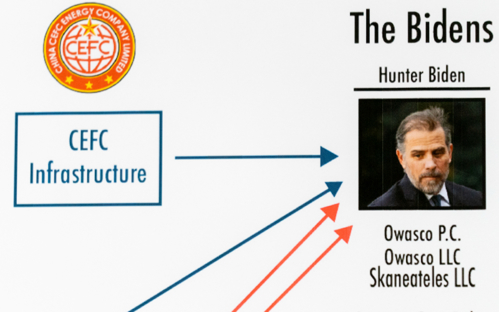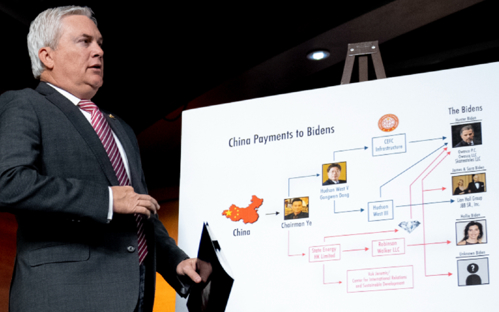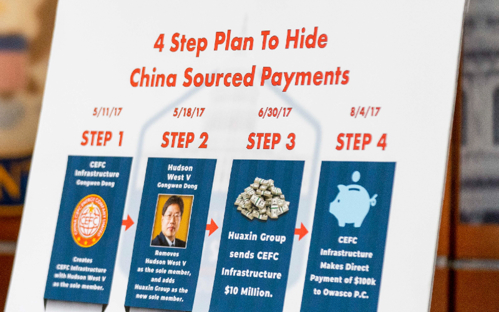Biden on Monday also pardoned others who he says have done nothing wrong, high-profile names like Dr. Anthony Fauci, the leading voice in the U.S.’s COVID response, retired U.S. Army Gen. Mark Milley, chairman of the joint chiefs for parts of Donald Trump’s first term and Biden’s only term, and all members of the House committee that investigated the Jan. 6 riot at the U.S. Capitol.
Most notable on the pardons list were James Biden and Francis Biden, the president’s brothers; his sister Valerie Biden; and Sara Jones Biden, James’ wife.
All were given a get-out-of-jail free card not for crimes committed but for the threat of prosecution from the Trump administration, Joe Biden said, completing a 180-degree turn from his position on preemptive pardons when it was Trump who was leaving office.
 There was uproar among Democrats then, many fearing that Trump would issue blanket pardons for his own family members on his way out.
There was uproar among Democrats then, many fearing that Trump would issue blanket pardons for his own family members on his way out.
It turned out Trump didn’t do that. Nor did he issue a preemptive pardon for himself, which would have come in handy considering the list of prosecutions, mostly federal, that he was forced to sidestep en route to an overwhelming election victory on Nov. 5.
Back then, Senate Majority Leader Chuck Schumer said to issue preemptive pardons “would be a gross abuse of the presidential pardon authority.”
Biden adamantly opposed the idea then, too.
“It concerns me, in terms of what kind of precedent it sets and how the rest of the world looks at us, as a nation of laws and justice," Biden lectured. "You’re not going to see in our administration that kind of approach to pardons."
Donnelly: Yes, it's legal
Well, look at him now. News of Biden's pardon for his family leaked as the now-former president sat a few feet away from Donald Trump at the inaugural ceremony.
Regardless of how it looks, the former president is on solid constitutional ground in issuing preemptive pardons, Mike Donnelly, an attorney and professor, said on American Family Radio Tuesday.
“Is it constitutional to preemptively pardon people? The Supreme Court thinks so," Donnelly told show host Jenna Ellis.

"There have been about six or seven cases dating back to 1833,” Donnelly said. “The Supreme Court has said that the pardon power is very broad, that it does reach offenses that have not been charged.”
The first question on everyone’s mind is why are pardons necessary if no crime has been committed?
Biden cited concerns that his family and the other individuals would be targeted by “baseless and politically motivated investigations.”
There could very be a solid base for those investigations. In fact, some have been investigated already.
The investigation that went nowhere
In May of 2023, the House Oversight Committee released findings of more than $10 million received from foreign nationals and dispersed among nine Biden family members.
Hunter Biden, pardoned by his president Dad earlier, was the most prominent name mentioned.
 Committee Chair Rep. James Comer (R-Kentucky) produced bank records he said showed a vast network of more than 20 shell companies that hid payments from businessmen in Romania and China.
Committee Chair Rep. James Comer (R-Kentucky) produced bank records he said showed a vast network of more than 20 shell companies that hid payments from businessmen in Romania and China.
Rep. Nancy Mace, a fellow committee member, said the Biden family’s repeated efforts to hide shady dealings amounted to “financial gymnastics.”
Mace challenged media in attendance to strengthen or begin their own investigations. Her challenge never created an interest among journalists covering the president at the time.
"It's as if the only thing that would convince the press out there is a Publisher's Clearinghouse-size check with Joe Biden's name on it being found in his garage next to his classified documents," media analyst Curtis Houck told Washington Watch then.
 The legal status of Biden’s family members notwithstanding, the former president is well within the boundaries of his authority, Donnelly said.
The legal status of Biden’s family members notwithstanding, the former president is well within the boundaries of his authority, Donnelly said.
“Article 2, Section 2, Clause 1 talks about this. It says the president shall have power to grant reprieves and pardons for offenses against the United States, except in cases of impeachment. The founders did talk about this at the Constitutional Convention.”
There was some debate as to whether to include exceptions to this authority.
“Some of the founders wanted treason in there, but they decided not to put it in there. Some wanted the Senate to be involved in approving pardons. The founders rejected that,” Donnelly said.
The idea of pardon power was introduced by Alexander Hamilton. His belief was that the president should be able to temper the sometimes-harsh criminal code.
Insulation from justice
Donnelly agrees with Schumer’s interpretation from four years ago.
“Honestly, pardoning your family as Joe Biden has done, is that was the pardon power was intended for? I don’t think so.
“When you think about what the Biden family has done over the last 10-15 years, enriched itself and sold influence, this is this pardon power, this pardon act by Joe Biden has insulated his family from justice.”







